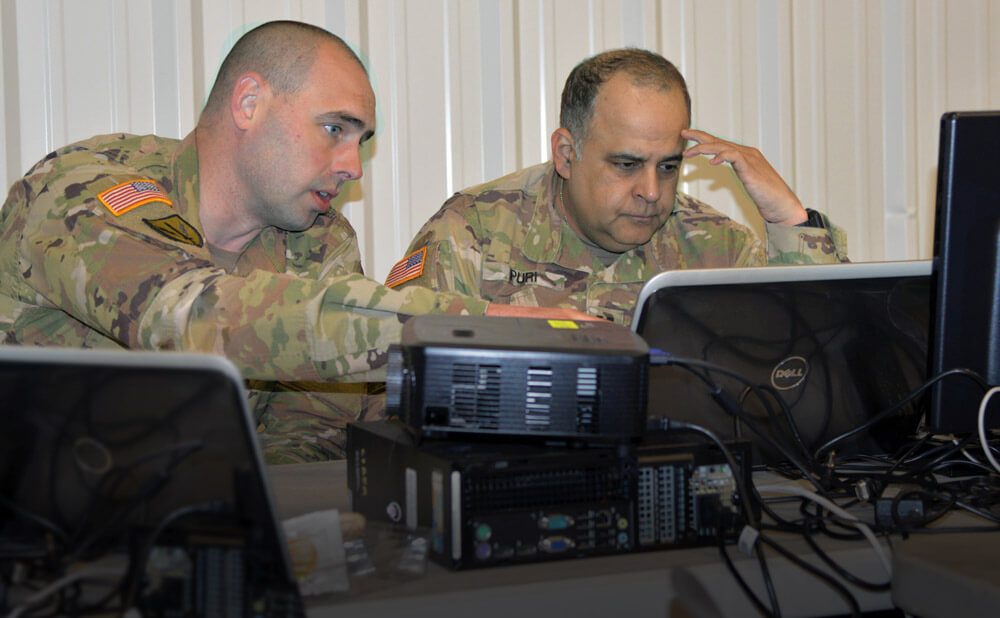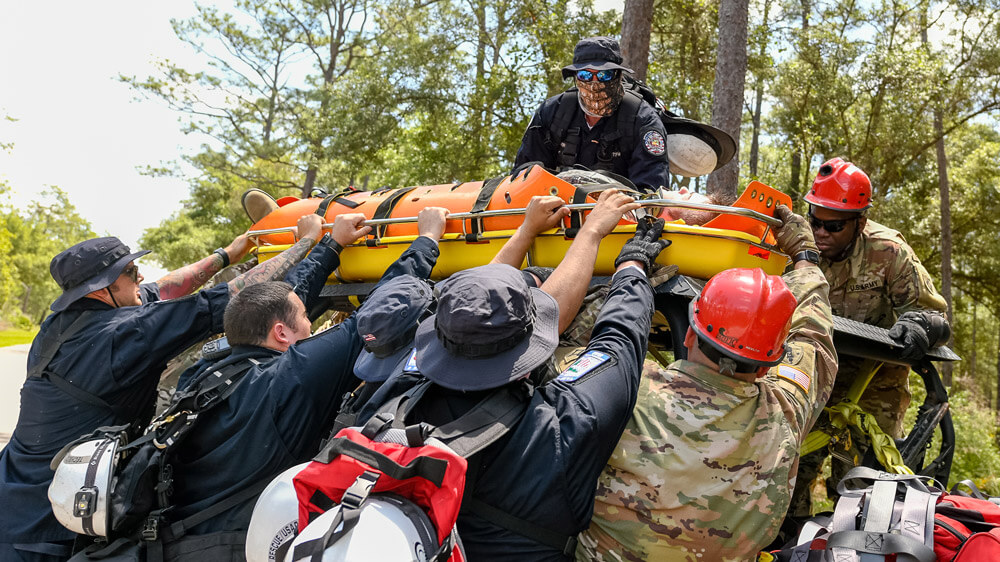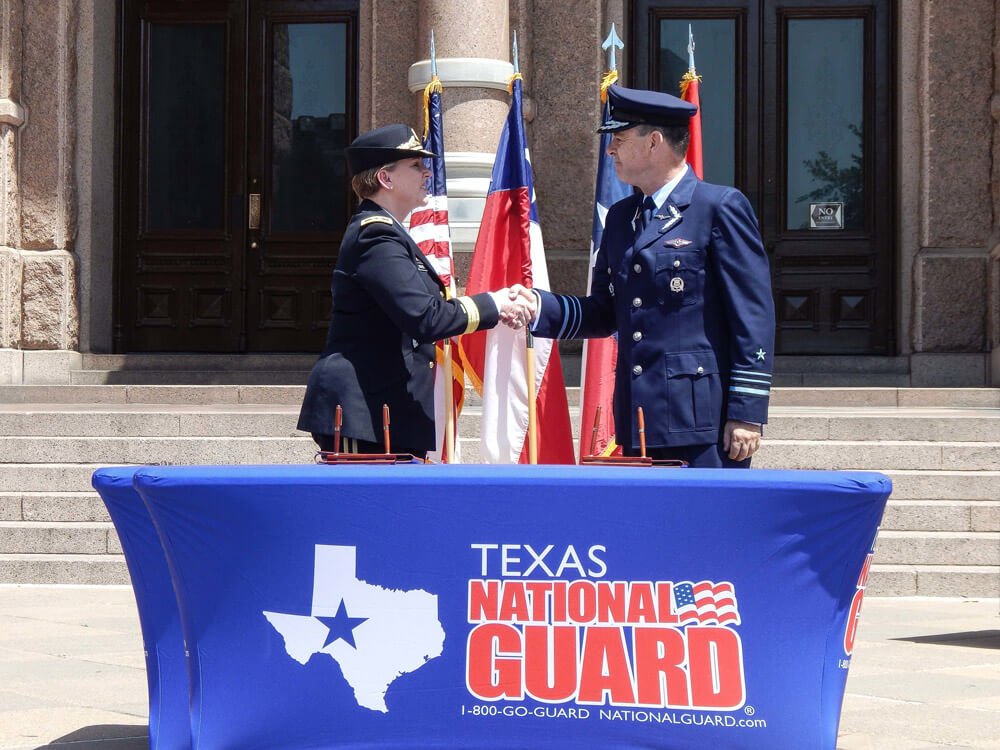As the use of technology increases, so emerges the threat of a dangerous cyberattack that can shut down our utilities, cripple our transportation system and threaten our democracy. For several years, the Washington National Guard has been at the forefront of working with both public and private organizations to help harden information technology networks and identify, advise and respond to digital vulnerabilities.
A team of Washington National Guard Soldiers and Airmen will continue that unique work for a new customer.
Recently the Washington National Guard was selected to participate in the new Cyber Mission Assurance Team (CMAT) pilot program, designed to protect critical infrastructure that services military installations.
“The Cyber Mission Assurance Team we’re piloting was designed to fill a gap in mission assurance for Department of Defense critical infrastructure outside the gate,” said COL George R. Haynes, chief of Cyberspace Operations, National Guard Bureau. “Inside the post, we’re able to do a pretty good job. But once we get outside the post, we don’t have a person that’s focused on the area of responsibility outside the post with our mission partners.”
Protecting critical infrastructure is nothing new for the Washington National Guard. In 2014, it conducted a utility grid assessment with the Snohomish County Public Utilities District, identifying some vulnerabilities and strategies to ensure a more secure network. Just this last fall, Washington National Guardsmen provided additional cybersecurity to ensure secure elections at the request of Washington Secretary of State Kim Wyman.
The focus of the CMAT, however, will be those companies that provide vital infrastructure to military installations like electricity, telecommunications and water. It is these aging industrial control systems that are vulnerable to cyberattacks.
“Washington has a large military presence, and the suppliers and mission partners that are providing services to these Department of Defense facilities use industrial control systems,” said LTC Adam DiPetrillo, commander of the Washington National Guard CMAT. “Industrial control systems include electricity and water distribution systems. Computer networks control these and therefore could be vulnerable to a cyberattack. We assess those vulnerabilities and can make recommendations to remediate those issues.”
The team reflects recent initiatives by the Department of Defense to develop partnerships with industry, and local and State government to address vulnerabilities in our Nation’s critical infrastructure.
“These systems are not DoD systems. They are owned and run by non-military entities, but the military has a vested interest in ensuring they are not vulnerable to cyberattack and that they are resilient,” said CPT Sameer Puri, Washington National Guard CMAT deputy commander and the director of Information Management for the Washington Army National Guard. “These are the utilities and companies that provide vital services to military installations, both active and National Guard. If we find a problem, we partner with that company to reduce or eliminate that risk.”
The National Guard has the unique opportunity to partner with some of the more vulnerable infrastructure partners in the Nation. With armories across the smaller city and rural communities, National Guard installations have many infrastructure support mission partners.
The Washington National Guard CMAT team, comprised of full-time and part-time Citizen Soldiers and Airmen, will combine a vibrant mix of technology skills, including those working for some of the most prominent technology companies in the State of Washington.
“The National Guard is uniquely suited for this mission because we do have that combination of civilian- and military-acquired skills, and we do have those existing relationships with industry,” LTC DiPetrillo said.
BY Joseph Siemandel, Washington National Guard



